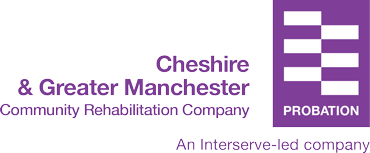
CGM CRC offers a comprehensive range of accredited programmes and activites to help people to understand the reasons behind why they have committed their offences, and to look at ways to stop them from repeating the behaviour.
A range of activities have also been developed that tackle offending behaviour.
Our programmes and activities are described below. The following are accredited:
This programme is for offenders who have a history of and index offence of violence or threat to commit violence. It includes 21 group work sessions and four one-to-one sessions and aims to assist participants in:
- developing their insight and awareness into violent attitudes and behaviours
- managing and reducing participant’s impulsivity
- identifying and challenging violent attitudes and beliefs
- indentifying and challenging hostile thinking
- enhancing and developing skills to manage emotions
- developing and enhancing interpersonal skills
- risk management and strengthening protective factors
- increasing motivation and engagement.
This programme is for offenders convicted of drink driving. The key outcomes promoted include:
- developing knowledge about alcohol with regard to units and consumption
- improving decision making
- improving forward planning
- changing attitudes to drink driving
- improving ability to generate alternatives
- knowing how to control thoughts, feelings and actions
- improving self-confidence and motivation to change things that have led to offending
- knowing what they have to do to solve problems using a step-by-step approach
- improving knowledge of what has to be done to avoid driving after drinking
- knowing what to do to prevent re-offending.
This programme aims to prevent re-offending by getting participants to:
- look at how they react to problems and other people
- learn a new approach to the way they think and solve problems
- stop offending
- achieve goals.
This course consists of three key elements that promote self-control, problem solving and how to form positive relationships.
We deliver the following non-accredited courses in Cheshire and Greater Manchester:
The course is designed for individuals in relationships marked by high levels of conflict. It works with people who commit domestic abuse and encourages them to accept personal responsibility for their negative behaviour and builds on their determination to change.
Improving Relationships – Supporting Change is suitable as:
- sentence in criminal courts
- intervention for individuals referred via social services departments, general practitioners and more
- self-referral by individuals concerned about their own behaviour
The course uses:
- anger management
- perspective taking
- communication and conflict resolution
- victim empathy
- distress reduction.
The course recognises the patterns of negative behaviour that result from dysfunctional family dynamics and promotes attitudes and skills to help participants break these patterns of behaviour.
This course is for offenders who are relatively new to the criminal justice system and who would benefit from a short intervention. It teaches new skills and ways of coping with problems, such as:
- improving the offender’s ability to recognise problems
- finding out how to take the best decisions
- learning about the impact and consequences of crime
- raising awareness about the issues and feelings victims experience
- deciding what changes need to be made to prevent re-offending
- keeping out of crime in the future.
This course is for offenders who have committed an acquisitive offence and focuses on individual responsibility, citizenship and attitudes to crime.
Achieving Peaceful Solutions is a progamme that aims to unpick the main factors underling violent behaviour and teaches people to use alternative methods to resolve conflict.
The programme teaches new skills and ways of coping with problems, such as:
- developing skills for managing unrealistic expectations about the behaviour of others
- challenging any wider societal views or opinions which support the use of violence
- developing the skills needed to manage conflict in a socially acceptable manner.
Achieving Peaceful Solutions is for offenders who pose a low to medium risk of harm and who have committed an offence that is violent or aggressive, including criminal damage and public order offences.
WISER is a course for women offenders and is based around a structured work group. It uses Cognitive Behavioural Theory and encourages offenders to examine why they have offended and motivates them to change.
The course teaches new skills and ways of coping with problems, such as:
- challenging the beliefs, thoughts and values that contribute to offending
- developing skills to better manage emotions and behaviours
- developing confidence in decision-making so women can lead a more appropriate lifestyle
- supporting the women in planning their own personal goals
- supporting participants in identifying future risks and developing skills and strategies to deal with them.
The programme is usually accompanied by a six-month community order.
This course is for offenders who have breached their orders. The aim is to look at reasons why they have breached and to increase their motivation to comply with their order.
[/bs_collapse]
